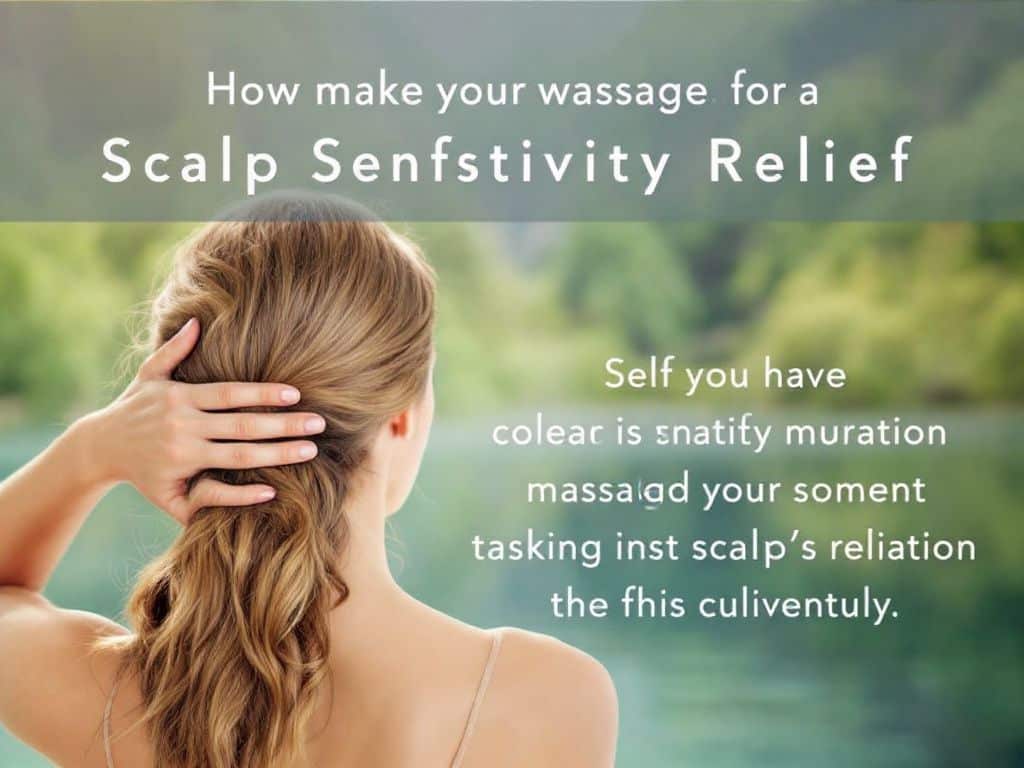
You know the feeling, right? That prickling sensation on your scalp that just won’t quit. One minute you’re trying to enjoy a breezy walk, and the next, you’re hopping from foot to foot because your scalp feels like it’s on fire. Well, my friend, you might be experiencing hair hypersensitivity. But don’t worry. We’re going to dive into this pesky issue together— exploring what causes it and, more importantly, how you can get it under control.
What is Hair Hypersensitivity?
Let’s kick things off with some specifics. Hair hypersensitivity is a condition where your scalp becomes overly sensitive to stimuli that wouldn’t normally be bothersome. You might notice discomfort while brushing your hair, choosing products, or even when the wind kisses your scalp a bit too passionately. Yep, it’s a real thing and you’re definitely not imagining it.
Signs You’re Dealing With Scalp Sensitivity
You might be wondering, how do you know if yours is a hypersensitive scalp or just, well, having a bad day? For many, signs include tingling, burning, itching, or pain when touching your hair. Sometimes, even just a little friction, like a brush stroke or putting on a hat, can send your scalp into a tizzy. Mild irritation sounds annoying, but guess what? It doesn’t have to be permanent.
Causes of Hair Hypersensitivity
Understanding why your scalp acts like it’s got a bad attitude is half the battle. Let’s sift through possible culprits:
1. Product Overload
Ever stand in the shower with a line-up of bottles claiming miracle results? Me too. But here’s the catch—overloading your hair with too many products can overwhelm your scalp. Some ingredients may not vie for a starring role, causing your scalp and hair follicles to freak out a bit.
**What to Watch For:** Products with harsh chemicals, artificial fragrances, and alcohol. These can all strip the natural oils from your scalp, leaving it vulnerable and irritated.

2. Environmental Factors
Weather is something we can’t control, but boy, does it have a say in our scalp health! If you live where temperatures nosedive in winter or skyrocket in summer, that changing weather could be nudging your sensitivity index.
**That Dry, Itchy Feeling:** Cold winters often lead to low humidity, drying out your hair and scalp. And hot weather? Well, sweat can create a perfect storm of discomfort.
3. Medical Conditions
Sometimes, the sensitivity might stem from an underlying medical condition. Little-known fact: issues such as eczema, psoriasis, or fungal infections love hanging out on the scalp bus. They can all contribute to scalp sensitivity, making everyday hair care a chore. If you suspect a deeper issue, getting a dermatologist’s insight could help steer you to solutions.
4. Psychological Factors
Stress—it’s a scalp’s worst nightmare! Anxiety and stress can manifest physically in various ways, possibly including your scalp’s sensitivity. When you’re feeling tension, your body might react by making everything feel heightened, including the nerve endings in your head.
Steps to Care for a Sensitive Scalp
So now that we’ve unearthed some reasons your scalp might be acting up, it’s time to zero in on the solutions that can offer relief.
1. Product Selection
Let’s start by decluttering the clutter. Carefully picking what you put on your scalp is a game-changer.
- Ingredient Check: Getting acquainted with ingredients is crucial. Opt for hypoallergenic products devoid of sulfates and parabens. Natural shampoos with soothing agents like aloe vera, chamomile, and tea tree oil are gentle options.
- Simple & Less is More: Try using fewer products. Stick to a basics-only regimen—shampoo, conditioner, and one styling product at most.
2. Gentle Hair Care Practices

A kinder hair routine can help reduce your scalp’s sensitivity:
- Soft Approach to Brushing: Use a wide-tooth comb or a soft-bristle brush. Be gentle—tugging could heighten your sensitivity.
- Right Temperature for Washing: Opt for lukewarm water instead of boiling hot showers which strip essential oils.
- Using Towels Wisely: Avoid vigorous towel drying. Instead, pat your hair with a microfiber towel to reduce friction.
3. Dietary and Lifestyle Adjustments
Believe it or not, what you eat and your habits reflect on your scalp’s well-being.
- Hydration is Key: Water does a body good, and that includes your scalp. Drink up to keep it hydrated and less prone to dryness and irritation.
- Balanced Nutrients: Consider a diet rich in omega-3 fatty acids found in fish, flaxseeds, and walnuts. These help fortify scalp health.
- Stress Management: Easier said than done, I know, but finding time to relax can alleviate hypersensitivity. Give meditation, yoga, or even daily walks a try to de-stress.
4. Handling Environmental Effects
Adjusting to environmental factors can bring some relief:
- Humidifiers for Dry Indoor Air: Particularly in winter, using a humidifier can add moisture back to your scalp environment.
- Seasonal Wardrobe Adjustments: Wide-brimmed hats for sun, and cozy beanies for cold, anyone? By protecting your head, you can help buffer environmental effects.
5. Checking In With the Pros

Let’s not forget the role of dermatologists in our hair-care journey. Sometimes, home care may not be enough, especially with persistent or severe hypersensitivity. In such cases, consulting a professional can help identify underlying causes and tailor treatments.
Recap and Renew Your Hair-Care Routine
That’s a lot, isn’t it? Just remember, hair hypersensitivity is more common than you might think, and with a bit of diligence in how you care for it, you can often manage it effectively.
Here’s a quick rundown:
- Less is More: Streamline your product lineup with those free of irritants.
- Gentle and Considerate Care: Treat your scalp with kindness—no tugging, rough towels, or scalding showers.
- Lifestyle Factors: Keep hydrated, eat nutrient-dense foods, and manage stress.
- Adjust for Your Climate: Protecting your scalp from the weather is always a good bet.
- 5. **Professional Help When Needed: A visit to the dermatologist might just sort out what’s lingering beneath.
Loving your sensitive scalp back to its glory might take time, so be patient. With each mindful step, you’re not only soothing the present issues but investing in long-term hair health. Just remember, you’re not alone in this—many have walked this path to alleviate hair hypersensitivity, and with the right approach, you can too.
It’s all about listening to your scalp, adjusting when needed, and loving your hair just a little more every day. You’ve got this!
Frequently Asked Questions
What are the common symptoms of a hypersensitive scalp?
The common symptoms of a hypersensitive scalp include itching, tingling, burning, or generalized irritation. The scalp can become red and show visible areas of inflammation, and it may be highly sensitive to touch. Additional symptoms can include skin dryness, leading to feelings of tightness and increased flaking, as well as sensitivity to hair products[1][2][3).
What are the primary causes of hair hypersensitivity?
The primary causes of hair hypersensitivity include imbalances in sebum production, the use of harsh cleansing products, exposure to UV rays, wearing hats or motorcycle helmets, and conditions such as psoriasis, eczema, and infections like folliculitis. Stress and extreme climatic conditions can also contribute to scalp sensitivity[1][2][4).
How can I treat a hypersensitive scalp at home?
To treat a hypersensitive scalp at home, use gentle, sulfate-free shampoos and conditioners. Avoid harsh chemicals and opt for products with natural, soothing ingredients like chamomile or aloe vera. Applying aloe vera gel or diluted tea tree oil can also provide relief. Regular scalp massages can improve blood circulation and reduce tension[2][4][5).
When should I seek professional help for a hypersensitive scalp?
If symptoms of a hypersensitive scalp persist, it is essential to consult a dermatologist. They can provide personalized solutions, diagnose underlying conditions, and recommend clinical treatments such as prescription shampoos, corticosteroid injections, or light therapy for long-term relief[2][3][4).
References- Typology – Scalp: The hypersensitivity of hair.
- HairMD India – Scalp Sensitivity: Causes, Symptoms, Treatment & Hair Loss Connection.
- Medical News Today – Scalp tenderness: Symptoms, causes, and treatments.
- Healthline – Scalp Pain: Causes, Treatment, and More.
- Centre Clauderer – Scalp hypersensitivity: what to do?.



Leave a Reply